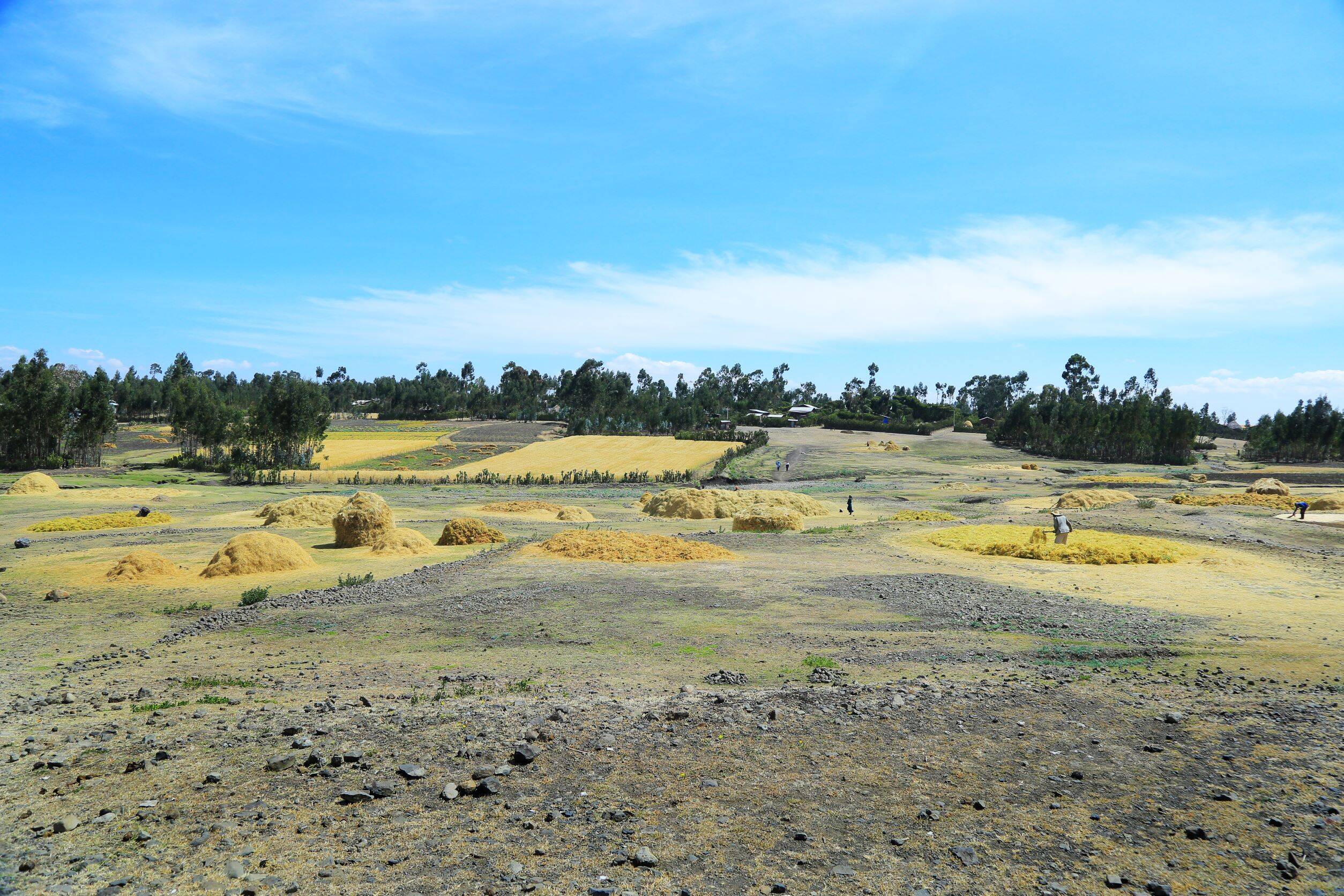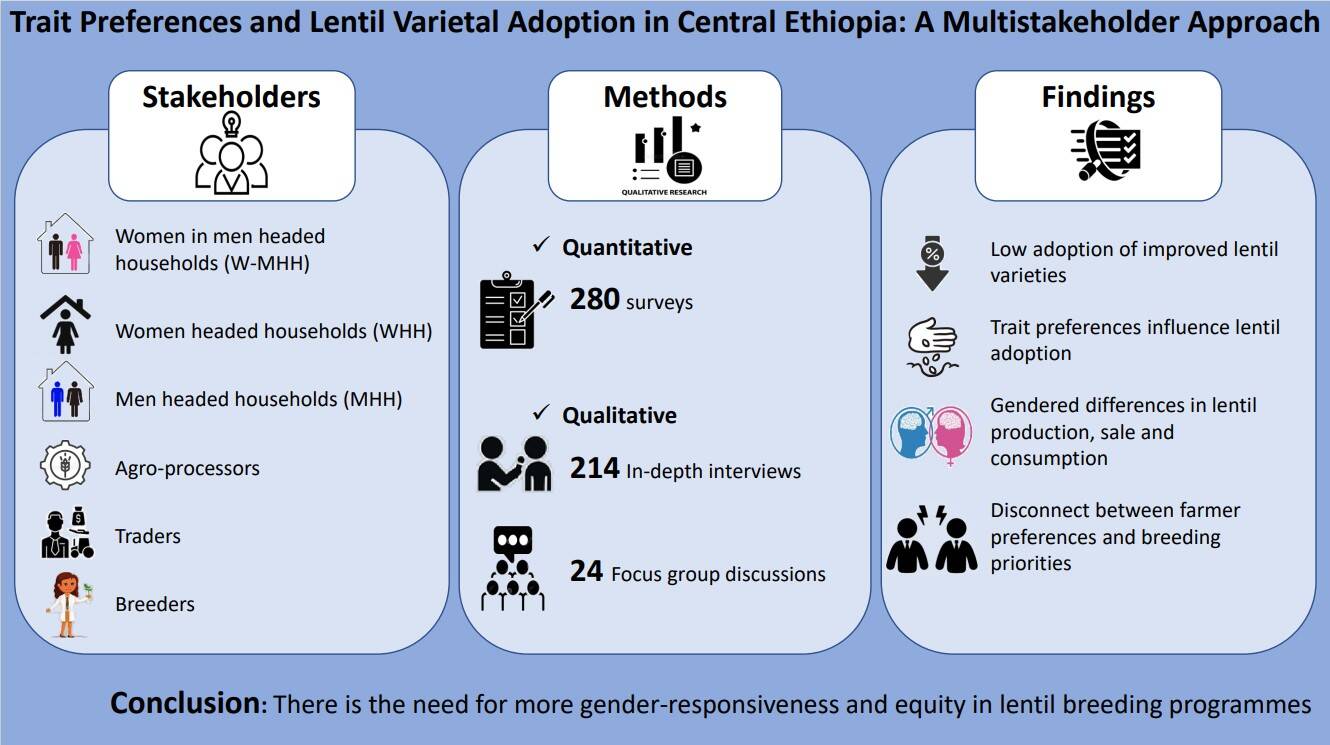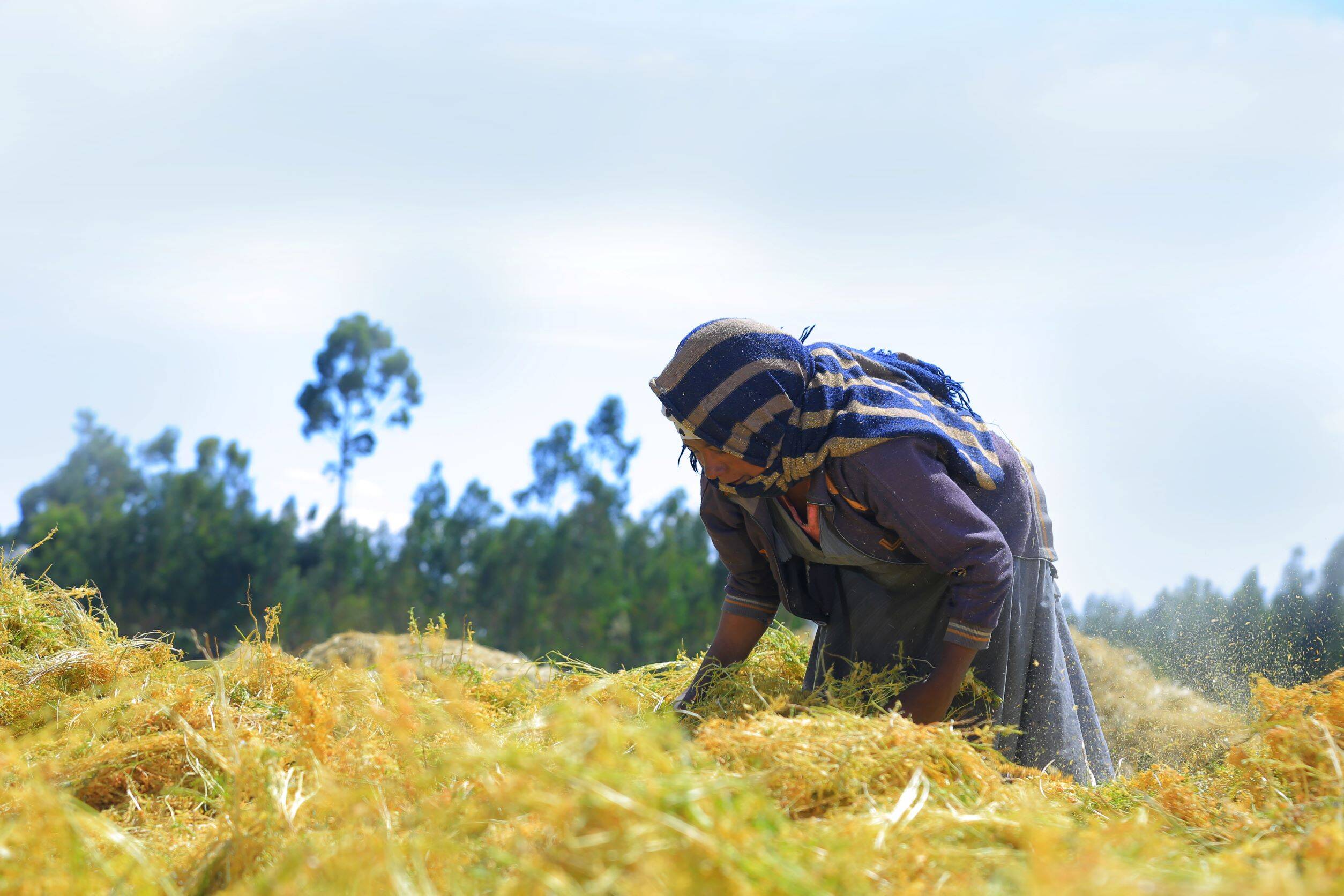Gender Equity in Crop Breeding: A Key to Broader Adoption

“This research was conducted as part of the CGIAR Research Program on Grain Legumes and Dryland Cereals (GLDC). Which is supported by contributors to the CGIAR Trust Fund.
------------
On International Day of Women and Girls in Science, ICARDA Gender Scientist Dr. Dina Najjar explains how including the crop traits’ preferences of different groups of male and female stakeholders (farmers, processors, breeders, and traders) could translate into broader adoption of improved varieties.
The adoption of improved crop varieties has not been homogenous in many regions of Sub-Saharan Africa. And although climate-smart, high-yielding, and pest-resistant crop varieties are vital to secure future food security, particularly in drier agro-ecologies, not all farmers welcome them, and many continue cultivating local varieties.
What if the key to unlocking broader uptake and adoption resided in including specific traits overlooked until now?
To find out, Dr. Dina Najjar worked with groups of both male and female lentil farmers, millers and processors, as well as breeders in Ethiopia to determine which traits they value most [see Figure. 1 for details on this multi-stakeholder approach.]
In a forthcoming paper, Dr. Najjar, Ph.D. Candidate Jemima Nounume Baada from the University of West Ontario in Canada and ICARDA's lentil-breeder Dr. Shiv Kumar Agrawal explores the extent to which the gender and other social characteristics of smallholders, traders, and agro-processors influence the inclusion of certain crop traits (Figure 1). In tandem, they also looked at the adoption rates of the available varieties.
“Most gender analyses of crop trait preferences conflate gender with household structure. We wanted to get a fine-grained picture of what people want from a variety," Dr. Najjar explains.

To ensure that plant breeding programs become more gender-responsive, 40 CGIAR plant and animal breeders have teamed up with social scientists -including gender experts- to establish G+ tools.
This transdisciplinary working group supports gender-responsive breeding methods and practices to ensure all types of farmers, and the traits they need, are included in crop breeding research and programs.
By using the G+ approach for this study, the three scientists found that Women Heads of Households (WHH) are more interested in lentil varieties that grow fast, as they depend on this crop for their food security. Married women prefer lentils that shatter less than the variety that is widely available. Indeed, when lentil pods burst open prematurely, women must harvest the lentils and dry them earlier, which is exhausting and time-consuming.

Historically, crop breeders tend to base research and programs on the needs of male farmers. This is for multiple reasons including the fact that extension officers are often men, faulty assumptions that farmers are only men, and due to women's heavy workloads. "Taken together, this creates the distorted reality that 'farmers' really mean male farmers and male-headed households,” Dr. Najjar explains.
While men who own larger portions of land seem to favor lentil varieties that are high-yielding and produce large grains, lentil processors (who are predominantly men) prefer lentils that split, since they get sold at a higher price.
These include splitting, pleasant taste, copious fodder for livestock, and reduced pre-harvest pod shattering.
"Losses from seed shattering shatter the dreams of farmers for a good harvest," explains study co-author and ICARDA lentil breeder Dr. Shiv Kumar Agrawal. "The G+ tools have helped us prioritize this trait in breeding product profiles designed for Ethiopia," he adds.

Lentil breeding, varietal release, and adoption research programs in Ethiopia should consider a diversity of traits beyond grain yield to encompass the range of production, processing, and consumption attributes that are valued by diverse stakeholders, various groups of farmers, processors, and millers, explains Dr. Najjar.
Plant breeding programs are on a path to becoming increasingly gender-responsive, which will encourage wider adoption of improved varieties and make sure smallholder farmers will get access to new varieties that improve their food security, income, and resilience to climate change.
----------------------------------------------------------------------------
“Trait Preferences and Lentil Varietal Adoption in central Ethiopia: A Multistakeholder Approach” [upcoming publication]
Authors:
- Dina Najjar is ICARDA’s Gender Scientist
- Jemima Nomunume Baada is a Doctoral Candidate in the Department of Gender, Sexuality, and Women's Studies at the University of Western Ontario, Canada.
- Shiv Kumar Agrawal is ICARDA’s Chief Lentil Breeder and Food Legumes Program's leader



